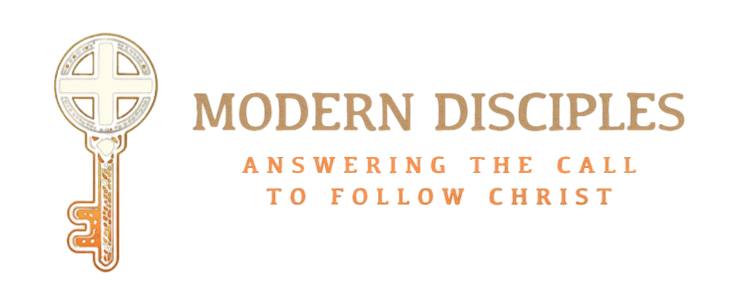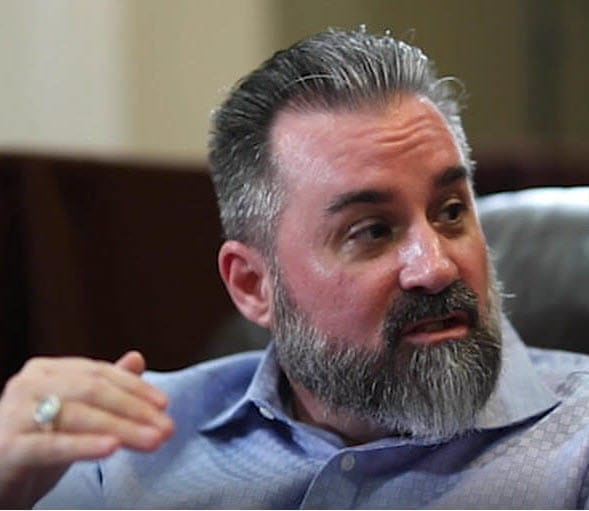
Biblical Worldview
Your Foundation for Truth in a Confused World
In a culture that treats truth like a pick-your-path to adventure book, a biblical worldview gives you a steady lens for seeing reality, making wise choices, and navigating daily life with confidence. Everyone has a worldview — the question is whether yours is anchored in Scripture or drifting with whatever cultural message feels right in the moment.
Here's what most people miss: your worldview isn't just what you believe about God. It's the operating system running in the background of every decision you make. It shapes how you interpret the news, raise your kids, spend your money, vote, and respond when life hits hard.
A Christian worldview is the interpretive framework that helps you read reality through Scripture — not by memorizing answers, but by building the right foundation to find biblical solutions to complex problems.
Right now, Christians face relentless pressure to compromise on core convictions about human nature, sexuality, the sanctity of life, and Scripture's authority. Without a clear biblical framework, it's easy to get steamrolled in conversations or slowly drift toward cultural accommodation without even realizing it.
The stakes are real. When your foundation is unstable, your decisions, values, and actions follow suit. You end up living a compartmentalized life where faith works on Sunday but falls apart by Tuesday.
But when your thinking is grounded in biblical truth, you can engage culture confidently without panicking or retreating. You can think clearly about complex issues, have meaningful conversations with people who disagree, and make decisions that honor God even when they're unpopular.
That's what we're building here — a practical, scriptural foundation that actually works in the real world.
The Battle for Your Mind
Every movie, news story, social media post, and casual conversation carries assumptions about what's true, valuable, or good. These messages aren't neutral — they're actively shaping how people think about reality, and most of us absorb them without even realizing it.
Here's how it works: cultural messages don't usually attack your faith directly. Instead, they subtly redefine basic concepts until your thinking shifts without you noticing.
Three examples of how this plays out:
Truth gets reframed as personal preference. When "your truth" and "my truth" become acceptable language, public debate shifts from facts to feelings. Suddenly, laws and institutions get justified by emotional appeals rather than objective standards. This shift toward moral relativism is so critical to understanding our cultural moment that we explore it in depth in our article on Moral Relativism vs Absolute Truth.
Human worth gets measured by usefulness. When people are valued primarily for their productivity or independence, it changes everything — healthcare policy, employment practices, how communities treat the elderly, disabled, or unborn. Dare I say, other cultures even value men more than women. But Jesus loved everyone and we need to do the same.
Purpose gets redefined as self-creation. When meaning comes from "finding yourself" rather than serving God and others, it transforms how people approach work, family, and relationships. Vocation becomes self-fulfillment instead of stewardship.
These aren't just abstract philosophical shifts. They directly affect how people vote, what laws get passed, how children are educated, and how families function.
Sharp Edge: I've watched too many Christians get steamrolled in conversations because they never learned to think biblically about complex issues. They know John 3:16 but can't explain why abortion is wrong, for example. That's not faith — that's intellectual laziness dressed up in religious language.
The problem isn't that Christians lack good intentions. The problem is that most of us have never been taught to recognize the assumptions behind cultural messages, let alone evaluate them against Scripture.
When a popular Netflix series makes moral compromise look heroic, do you notice what it's teaching about human nature and consequences? When politicians promise solutions that sound compassionate, do you ask what view of people and government those solutions assume?
Here's the reality: if you can't spot these assumptions in everyday culture, you'll end up adopting them by default. The good news? Once you learn to recognize these patterns, you can't unsee them. Paul wasn't kidding when he told us not to be conformed to this world but to be transformed by the renewing of our minds (Romans 12:2). That transformation starts with learning to think biblically about the messages bombarding us daily.
Building Your Biblical Foundation
A solid Christian perspective doesn't happen by accident. It's formed through steady habits: regular Scripture reading, honest reflection, and letting the Bible shape how you interpret everything from current events to personal decisions. But here's what most people miss — the order in which you ask life's big questions determines whether you end up with biblical answers or cultural ones.
The Right Order Matters
When seeking God, you'll naturally ask yourself these fundamental questions, but the sequence is crucial. Follow this framework and you'll be fairly safe in your conclusions:
Who is God?
What has He done for me?
Who am I?
How should I live?
If you follow this order, you'll understand that God loves you, He gave His only Son for you, you're His child, and you should live as such. But most of the world asks these same questions in reverse order.
If you start with "How should I live?" then move to "Who am I?" and "What has He done for me?" you'll come up with a non-biblical definition of God every time. You'll end up with a deity who exists to serve your preferences rather than the sovereign Creator who calls you to transformation.
Start with the Big Questions — In Order
1. Who is God? Scripture reveals God as Creator, sovereign, holy, loving, and just. He's not a cosmic therapist or a divine vending machine — He's the eternal, unchanging foundation of all reality. This shapes everything else.
2. What has He done for me? The gospel: God created us for relationship, we rebelled, and He provided redemption through Christ's life, death, and resurrection. This isn't about what we've earned — it's about what He's accomplished.
3. Who am I? You're made in God's image, fallen but redeemed, called to be His child and ambassador. Your identity comes from His work, not your performance or society's labels.
4. How should I live? Now you can answer this biblically — as someone who belongs to God, saved by grace, called to reflect His character and advance His kingdom.
Learn to Think Categorically
Once you have the foundation right, develop the habit of evaluating ideas systematically. When you encounter any claim — whether it's a news story, a friend's advice, or a cultural trend — run it through these four quick checks:
• Does this align with Scripture's teaching about God's nature and purposes?
• What unspoken assumptions about truth, reality, or morality underlie this idea?
• If consistently applied, where would this lead — personally, socially, legally?
• How does this compare to historic Christian teaching and wisdom?
The goal is to ask the right questions in the right order, then let Scripture guide you toward biblical conclusions.
Where the Rubber Meets the Road
A biblical framework isn't an abstract theory — it rearranges how you live, work, and engage your neighborhood.
Here's how a consistent Christian perspective shows up in the practical areas of life:
In Your Personal Life
Practice stewardship, not ownership. See your money, time, and talents as entrusted to you by God. Set a giving habit that reflects this reality, trim wasteful subscriptions that don't serve your calling, and ask weekly: "Does this choice honor God and serve my neighbor?" These small habits compound into transformed lives.
In Your Family
Form hearts, not just behavior. Turn daily routines into discipleship opportunities — explain the "why" behind family rules, assign meaningful responsibilities that teach service, and hold regular conversations about how biblical truth applies to current events. Your dinner table can become a training ground for thinking biblically about the world.
In Your Work
Treat your job as a vocation, not just a paycheck. Begin each day asking how you can serve coworkers and customers well, seek ways to demonstrate integrity in small decisions, and evaluate career moves by calling and character rather than just status or salary. Your workplace becomes a mission field when you see it through the right lens.
In Your Community Engagement
Let concern for human dignity shape how you vote and volunteer. Pick one local issue to study biblically this year — maybe education policy, care for the elderly, or support for struggling families. Then find one practical way to serve, not just complain. Biblical thinking without biblical action is just religious intellectualism.
Sharp Edge: Most churches are producing consumers, not disciples. We've got people who can sing worship songs and attend Bible studies but can't explain why their faith matters for real-world issues. That's not discipleship — that's religious entertainment with a side of moral therapy.
Common Pitfalls to Avoid
Don't compartmentalize your faith into a Sunday-only activity. Start by choosing one routine decision — maybe your media consumption, spending habits, or conversation patterns — and ask how your Christian convictions should shape it.
Also, avoid the extremes of cultural withdrawal and cultural accommodation. You're called to be in the world as faithful presence — engaging thoughtfully without compromising core convictions. That requires wisdom, courage, and a lot of grace for yourself and others as you learn to live consistently.
Let your biblical foundation actually influence the choices you make every day.
We don't sidestep hard topics here. We face them head-on. So start by exploring our category pages - they're practical built to help you think more biblically. You should find them very informative and useful. If you agree, then feel free to drill down into the articles within each category. Take your time. If you do, you'll learn a lot and be better equipped to live more like Christ.
Category Articles Include:
Moral Relativism vs. Absolute Truth
A Biblical case for absolute truth and how it answers cultural confusion.
How to engage arts, politics, and public life without compromising a Biblical witness.
Spotting Worldviews in the Wild
Discernment means learning to recognize the assumptions behind cultural messages, even when they're wrapped in appealing language. Most ideas don't announce their philosophical foundations — they just present conclusions and hope you'll accept them without digging deeper.
Question the Questions
Conversations often hinge on loaded questions that presuppose certain answers. When someone asks about "compassionate" policy, they're assuming their definition of compassion is correct. When media frames an issue as "progress versus tradition," they're assuming change equals improvement.
Learn to unpack these assumptions. Ask: "What does compassion require biblically?" or "What kind of progress are we talking about, and toward what end?" Reframing the question often reveals the real issue at stake.
Follow Ideas to Their Logical Conclusions
Don't just evaluate ideas in isolation — trace where they lead. If human worth is determined by consciousness or independence, what happens to people with dementia or disabilities? If truth is purely subjective, how do we make laws or resolve conflicts? If marriage is just about adult feelings, why limit it to two people?
This isn't about winning arguments — it's about understanding consequences. Ideas have trajectories, and biblical discernment helps you see where they're headed before you get swept along.
Read the Cultural Moment
Like the men of Issachar who "understood the times" (1 Chronicles 12:32), learn to recognize the patterns shaping your cultural moment. Who's driving the conversation? What assumptions persist across different topics? What new vocabulary keeps appearing, and what worldview does it carry?
A Measured Approach
Avoid both alarmism and naivety. Some cultural shifts need firm resistance; others require patient engagement. The goal isn't to be perpetually outraged or constantly compromising — it's to respond wisely to each situation.
Develop the habit of asking: "Is this a hill worth dying on?" Some battles are essential; others are distractions from more important work. Discernment helps you tell the difference and respond accordingly.
Start Where You Are
Developing a Christian perspective is a lifelong journey that requires humility to admit error, courage to stand for truth when it's unpopular, and wisdom to engage those who disagree gracefully.
But it starts with simple, concrete steps you can take this week.
Three Immediate Actions:
Pick one area for a worldview audit. Choose finances, relationships, or entertainment. Spend ten minutes asking: where do my practices diverge from my stated convictions? What one small change can I make this week?
Practice the four-question framework. Next time you encounter a cultural message that feels off, run it through the checks: Does this align with Scripture? What assumptions underlie it? Where does it lead? How does it compare to Christian teaching?
Start a conversation. Find one person to discuss these ideas with regularly — maybe a family member, friend, or small group. Iron sharpens iron, and thinking biblically works better in community.
The world needs Christians who think clearly, speak truthfully, and live consistently. Start where you are, use what you have, do what you can — today.

Chris Daniel, just a servant of Christ calling others to be ready. Like the Bereans, I try to examine Scripture daily to see if what I hear is true. If you're struggling to live as we're called, you're still in the fight. Don't give up.
Category 2 - Christian Apologetics

Category 3 - Bible Study

Category 4 - Theology


"Most middle-class Americans tend to worship their work, work at their play, and play at their worship. As a result, their meanings and values are distorted. Their relationships disintegrate faster than they can keep them in repair. Their lifestyles resembles a cast of characters in search of a plot." - Gordon Dahl
"The Bible is a reliable collection of historical documents written down by eyewitnesses during the lifetime of other eyewitnesses that report supernatural events that took place in fulfillment of specific prophecies and claimed their writings were divine rather than human in origin."
- Dr. Voddie Baucham on 2 Peter 1





